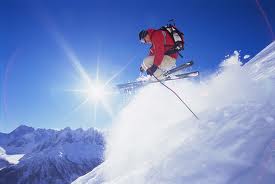When you interview for a possible engagement, are you at a loss for how to prepare? You might want to take some ideas from how Olympic athletes prepare for their performances.
 1. You want to have your routine figured out. For interview Olympians that means a list of topics that you want to find out about. At this point in the hiring process you want to think about what you need to know about the assignment that will help you determine if you can do the job successfully? Perhaps this involves resources allocated for the task or what processes will be used to resolve issues/problems that come up. Remember the hiring manager should lead in the interview and may well have these topics on his/her list too. But you want to make sure you get answers to questions that will affect your ability to succeed. You are also interviewing the potential employer.
1. You want to have your routine figured out. For interview Olympians that means a list of topics that you want to find out about. At this point in the hiring process you want to think about what you need to know about the assignment that will help you determine if you can do the job successfully? Perhaps this involves resources allocated for the task or what processes will be used to resolve issues/problems that come up. Remember the hiring manager should lead in the interview and may well have these topics on his/her list too. But you want to make sure you get answers to questions that will affect your ability to succeed. You are also interviewing the potential employer.
2. Olympic athletes look carefully at the course they are going to compete on, experiencing it as much as possible. A similar task for the job interview is researching the company and trying to understand its strategy and where your assignment might fit into it. Obviously you won’t know as much as the interviewer but being knowledgeable allows you to show your interest in the job and company, and makes your performance in the interview smoother.
3. Be clear on the strengths and experiences you want to emphasize – that is how you will shine in the interview/performance.
4. Most Olympic athletes have tactics for managing difficult situations during their performances. Be ready to answer any difficult questions that might arise about your candidacy for the job. Do you have gaps in your work history that need positive explanations? Have you developed a response about why you enjoy working on limited term assignments? Do you know how you would telescope an open ended question such as, “Tell me about yourself” so that you answer in a way that supports your candidacy and does not take up undue time? And finally, do you have a good answer to that perennial question: “What is your greatest weakness?” A good response here would be to highlight a past work weakness and how you overcame that weakness or what you learned to off-set it in the future.
5. Remember that the ideal interview/performance is one that appears to be totally natural and unscripted. Living in the moment as athletes describe it. But that natural look of ease is built on extensive training, practice, and forethought. To have that look in a job interview you need those same three qualities.
And a final word – remember that the job interview is not the time to negotiate. You haven’t got the job yet! Negotiating after you have the offer gives you a much stronger position than bringing it up before the hiring manager has made a commitment.